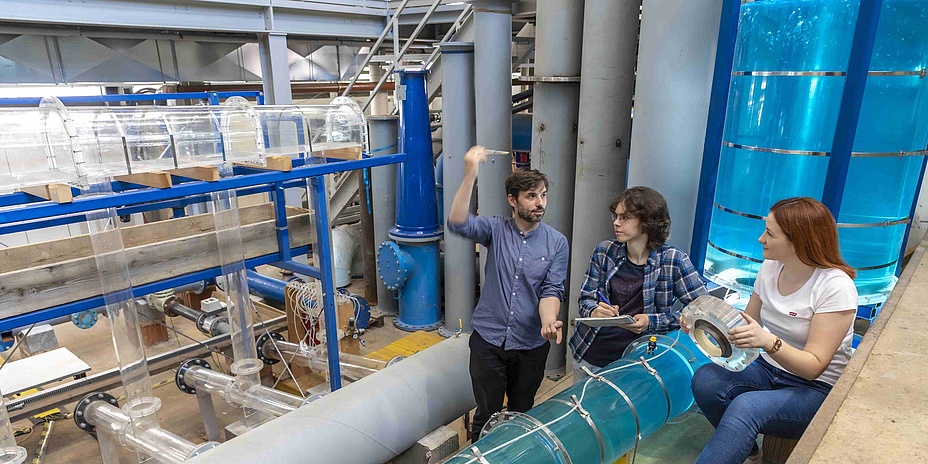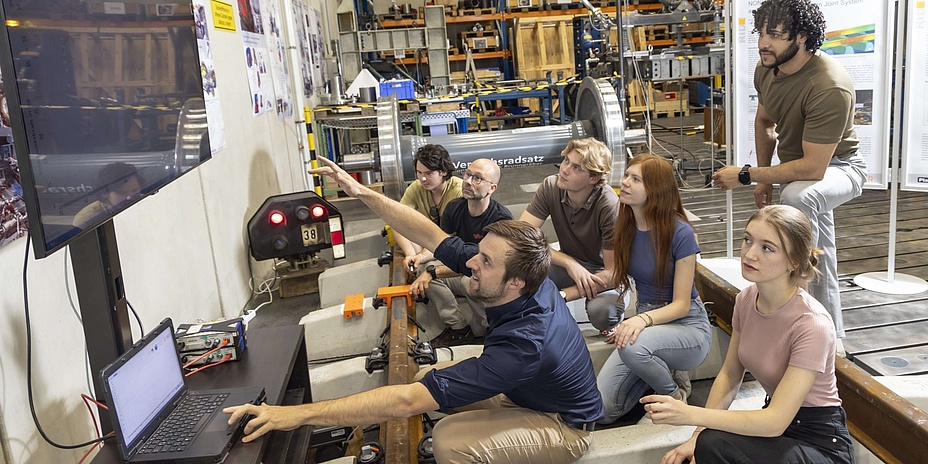Article created on: 03.07.2019 Last updated: 28.03.2025
Despite all the criticism often levelled at university rankings, their relevance and credibility, they still influence public debate about higher education and the academic system. Some 20,000 universities and colleges are analysed worldwide. Only a small part of these are included on the rankings lists. These often serve as orientation aids for decisions on where to study, career planning, cooperation or investment. For a current assessment of TU Graz it is worth taking a closer look, as the individual rankings differ greatly in focus and evaluation criteria.
Worldwide about 20,000 universities and colleges are analysed and only a small part of them are included in the rankings. If, for example, a university is ranked 300th, it is among the top 1.5 percent worldwide.
The many dimensions of a University
U-Multirank compares more than 2,200 leading universities and colleges from 96 countries around the world. It does not come up with a ranking list, but is dedicated to the many dimensions of universities – research, study and teaching, knowledge transfer, international orientation and regional commitment – and evaluates them individually according to more than 40 indicators between “excellent – A" and "weak – E". In the last ranking 2022, TU Graz achieved no less than 16 A and 8 B placings, and was thus by far the top of all ranked universities in Austria. The TU Graz also performed very well in international comparisons and ranked ahead of MIT or several renowned German technical universities, for example.

among other things. (Image source: Lunghammer – TU Graz)
In the dimension of "Research", TU Graz achieved four top rankings, including in research publications and interdisciplinary publications as well as in external research income and post-doc positions. In the dimension "Teaching & Learning", TU Graz excelled in the indicator pedagogically skilled teaching staff as well as in gender balance, i.e. the number of women with a doctoral degree compared to the overall number of students. Another dimension of the ranking was "International Orientation": Here, too, TU Graz excelled with three A-placements, namely in student mobility, international academic staff and international joint publications. In the dimension of "Knowledge Transfer", Graz University of Technology took no less than five A-ranks in co-publications with industrial partners, patents and industry co-patents, publications citations cited in patents and in income from private sources. Two further A-ranks were allotted to the dimension "Regional Engagement".
U-Multirank has now been discontinued and a monitoring tool is currently being implemented as a follow-up project.

achieves excellent positions. (Image source: Lunghammer – TU Graz)
On your rankings, get set, go...
This is no coincidence, since TU Graz decided a few years ago, as part of its university strategy, to take targeted measures to increase its presence in the rankings. "Our aim was to be at the top of all these rankings," explains Manuela Berner, head of the OU Quality Management, Evaluation & Reporting at TU Graz. "Today, TU Graz has notable results in all strategically selected rankings such as the U-Multirank, the CWTS Leiden Ranking, the QS World University Ranking or the Times Higher Education World University Ranking (THE)", says Berner, "in individual research fields – as is the case in the Life and Earth Sciences of the Leiden Ranking 2023 with world rank 52 – we achieve excellent positions". In the QS World University Ranking 2025, TU Graz is ranked 413 in the world, placing it in the first third of the ranked universities.
In the QS World University Ranking 2025 a total of 5,663 universities from all over the world were analysed and 1,503 of them published in the ranking. The reputation, number of citations, supervision ratio and internationality of academic staff and students are decisive for the overall assessment. Sustainability, Employment Outcomes and International Research Network were among the ranking criteria. TU Graz is number 413 in the current ranking.

such as laboratories and test facilities. (Image source: Lunghammer – TU Graz)
Research: highly regarded scholarly output
A good indicator of scholarly output and cooperation in research is the Leiden Ranking, which provides insights into the scholarly performance of 1,411 leading universities worldwide. As a bibliometric ranking, its central parameter is the citation rate, which indicates how often publications by scholars from other research institutions are cited. The results of the Leiden Ranking in the last couple of years show that the scholastic output of researchers at TU Graz is attracting great attention in the academic world. In terms of the share of publications among the most cited 10 percent, TU Graz ranks 558th in the world in 2023, and even 13th in the world in terms of publications with industry.
The Leiden Ranking, which assesses the scholarly performance of universities, identifies TU Graz as one of the top universities in Europe. TU Graz bundles its research in the heart of Europe into five areas in which researchers work together across disciplines. Find out more about these Fields of Expertise.
Very well-placed in many subject areas
In the QS-Subject Ranking 2025, Graz University of Technology was ranked 302nd in the world in the subject group "Engineering and Technology" and 377th in the group "Natural Sciences", and performed particularly well in the following subjects:
- Architecture and Built Environment: ranking group 151-200
- Materials Sciences: ranking group 201-250
- Engineering – Civil and Structural: ranking group 201-275
- Engineering – Mechanical, Aeronautical and Manufacturing: ranking group 201-250
- Engineering – Chemical: ranking group 251-300
- Computer Science and Information Systems: ranking group 251-300
In the field ranking of the Leiden Ranking 2023, TU Graz is 52 for Life and Earth Sciences – moving up into the top 100 – and 178th in the world for Biomedical and Health Sciences and is ahead of many of its benchmark universities in these subject areas.

small Austrian university by global standards. (Image source: Fotogenia – TU Graz)
Strong cooperation with industry: entrepreneurial university
Rector Horst Bischof is delighted about the generally positive tendency of TU Graz in the international rankings and about the particular strengths of the small Austrian university compared to other universities worldwide. "The results of the most important international rankings confirm that we are not only working strategically on paper towards our goal of showing our profile in research, networking more closely with industry as an 'entrepreneurial university' and entering into intensive cooperation, but that we are also putting this into practice.” For example, the collaboration indicators of the Leiden Ranking 2023 demonstrate the strength of TU Graz in its cooperation with industry and business. In the "Share of co-publications with industry”, TU Graz ranks 13th in the world and 4th in Europe, making it one of the best universities in Europe and the world.
TU Graz regularly takes top positions in international rankings in the share of joint publications with industry. This makes it one of the best universities in the world in terms of cooperation with companies. The Research & Technology House of TU Graz is the central contact point for companies who want to make use of the expertise of TU Graz for their innovation plans.

partners from science and industry. (Image source: Lunghammer – TU Graz)
National and international collaboration
That TU Graz also works together intensively with regional and international scientific partners is also reflected in the Leiden Ranking in co-publications with co-authors from other organisations. Here, the highly cooperative university is placed on top with a world ranking of 174 in international collaboration and is also solidly positioned with a world ranking of 479 in national and worldwide co-authored publications.
Would you like to receive the latest stories, research stories, interviews or blog posts from TU Graz directly on your smartphone or in your email inbox? Subscribe to the Telegram newsletter or the TU Graz research newsletter free of charge.
![[Translate to Englisch:] Image source: TU Austria](https://www.tugraz.at/fileadmin/_processed_/6/2/csm_TU-Graz-by-tu-austria_da828fefdd.jpg)
